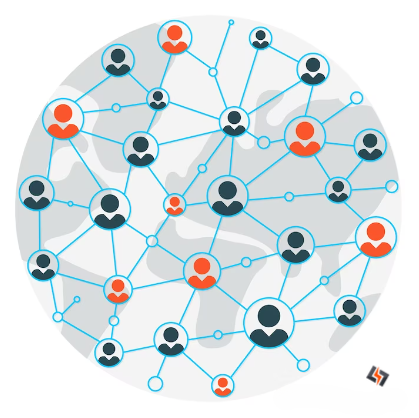Networking
Networking is a broad field that covers various areas related to the communication and connection of devices. Here are some common networking topics:
- Types of Networks:
- Local Area Network (LAN): A network within a limited geographical area, typically within a building or a campus.
- Wide Area Network (WAN): A network that spans a larger geographical area, often connecting LANs across different locations.
- Metropolitan Area Network (MAN): A network that covers a city or a large campus.
- Wireless Networks: Networks that use wireless technology for communication, such as Wi-Fi.
- Network Components:
- Router: A device that forwards data packets between computer networks.
- Switch: A device that connects devices within a LAN and forwards data at the data link layer (Layer 2) of the OSI model.
- Hub: An older device that connects multiple devices in a network, but it’s less efficient than switches.
- Firewall: A security device or software that monitors and controls incoming and outgoing network traffic.

Protocols:
- TCP/IP: The suite of protocols that underpins the internet and most LANs.
- HTTP/HTTPS: Protocols used for web browsing and communication.
- SMTP/POP/IMAP: Protocols used for email communication.
- FTP: Protocol used for file transfers.
Network Security:
- Firewalls: Devices or software that protect a network by filtering incoming and outgoing traffic.
- Intrusion Detection Systems (IDS) and Intrusion Prevention Systems (IPS): Technologies that monitor network traffic for suspicious activities and prevent unauthorized access.
- Virtual Private Networks (VPNs): Secure connections over public networks, often used for remote access or connecting branch offices.
IP Addressing:
- IPv4 and IPv6: The two main versions of the Internet Protocol, used to identify devices on a network.
- Subnetting: Dividing an IP network into smaller sub-networks for better management and efficiency.
Network Topologies:
- Star: Devices are connected to a central hub or switch.
- Bus: Devices are connected in a linear sequence along a single communication path.
- Ring: Devices are connected in a circular manner.
DNS (Domain Name System):
- A system that translates human-readable domain names (like www.example.com) into IP addresses.
Network Troubleshooting:
- Techniques for identifying and resolving issues in a network, such as connectivity problems or slow performance.

